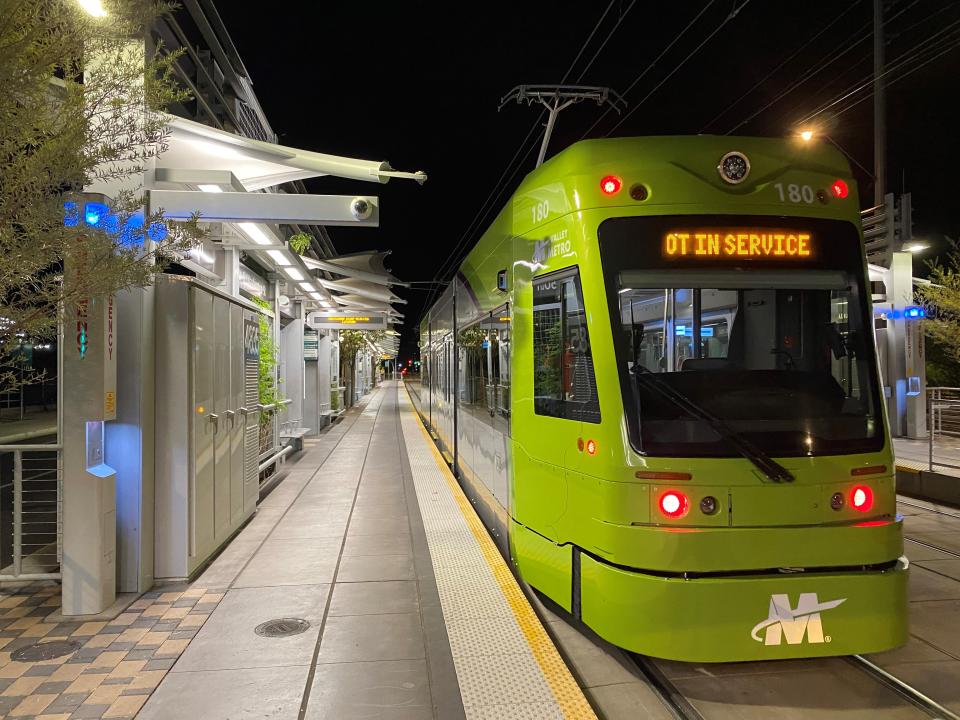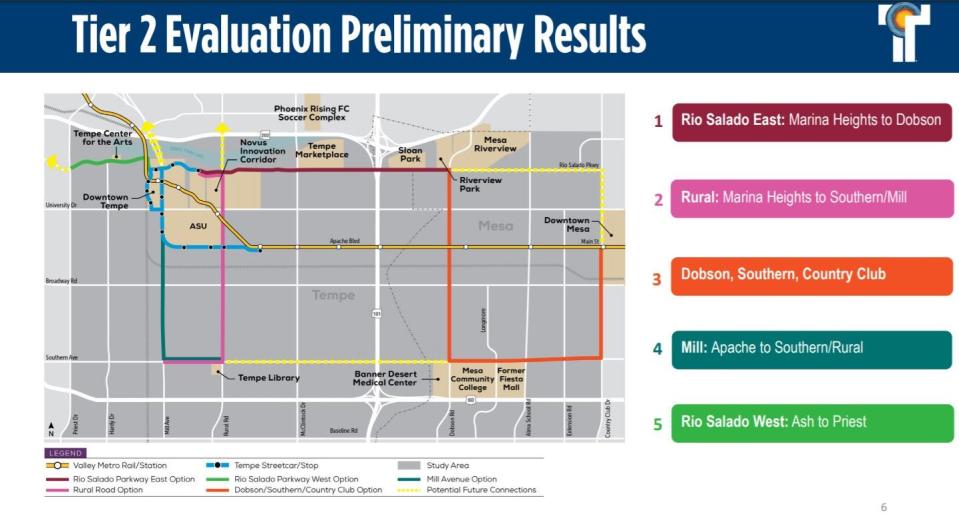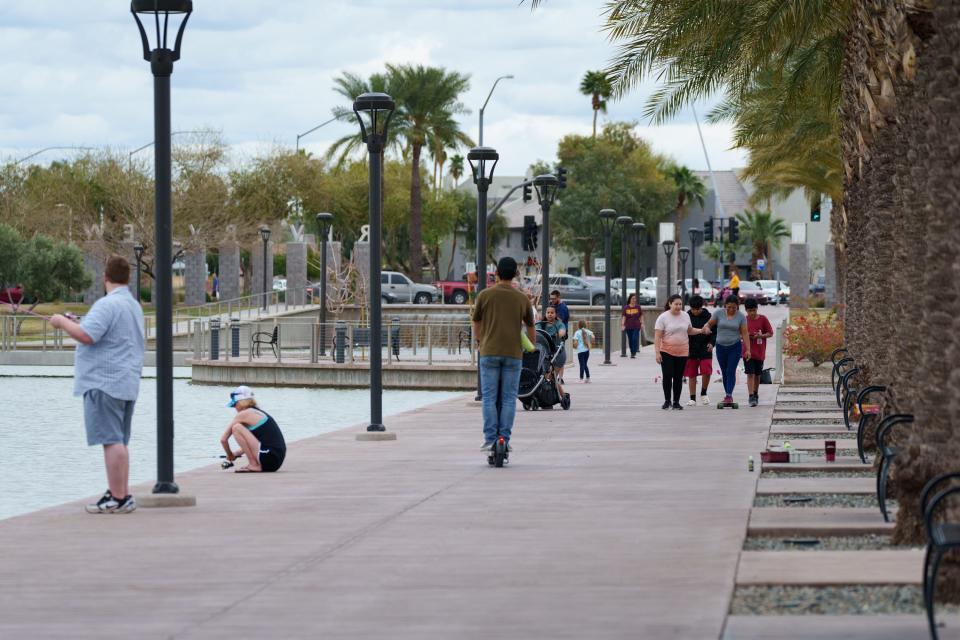Mesa-Tempe streetcar funding nixed in new Proposition 400 plan, but cities haven't given up
A plan to extend Tempe's streetcar into Mesa is now without funding after state officials excluded the more than $400 million project from a new iteration of Maricopa County's transportation sales tax program.
But leaders from both cities say they haven't given up on the project yet. They just don't know where they'll get the cash to fund it.
The countywide program that was initially supposed to fund the streetcar is called Proposition 400. It's a voter-approved initiative that uses a half-cent sales tax to fund billions worth of transportation projects across the Valley, including Tempe's existing streetcar system that provides residents with about 42,000 rides each month.
Arizona lawmakers have to greenlight the tax program before it can be renewed by voters ahead of its 2026 expiration deadline. But the Legislature has struggled to pass a workable program extension because Republicans have wanted less transit in the 20-year tax initiative, while Democrats have sought more transit funding.
The broader impact on Tempe: Losing Proposition 400 funds is Tempe's transit nightmare as lawmakers question light rail

On Tuesday, the two sides reached a compromise. They approved a sales tax plan that will continue to cover Valley cities' costs for operating and maintaining their transit systems, but the new program will not fund any more large-scale additions to the region's transit network.
That means no funding for the Tempe-Mesa streetcar extension that city leaders insist is needed for everything from economic development to environmental conservation. Combined, the cities will lose out on $190 million, plus another $113 million worth of outside matching funds, which city staffers have said is crucial to finance the effort.
"The project still is hinging on that funding that's expected to come through Prop. 400's (extension)," Tempe’s transit manager Sam Stevenson told The Arizona Republic earlier this year, adding that the city's 3-mile-long streetcar track serves more passengers per mile than any other transit service in Tempe.

Neither city has thrown in the towel, however. They teamed up with Valley Metro in March to study whether they might be able to extend the streetcar on their own, an analysis that Tempe said is in its "early stages and is currently underway."
Tempe staffers said that "additional analysis is required to better understand the feasibility and timeline for the extension of streetcar," suggesting they don't yet know if they'll be able to make up for the lost Proposition 400 money.
Mesa officials were more optimistic about their chances of finding alternative sources of funding and told The Republic that the city will still move forward with planning the extension.
Mesa's Proposition 400 projects: These Mesa transportation projects could be at risk in Proposition 400 debate
“We have to let the dust settle” and figure out how it will fund the capital costs to a street car extension into Mesa, City Manager Chris Brady said. That largely could come from the federal government, he said.
It's unclear how the loss of Proposition 400 cash will hinder the cities' abilities to secure that federal cash, however. Communities across the country compete for those dollars, which are often awarded to jurisdictions that can put up enough of their own cash to complete the project in question.
There's also a local option. Tempe has its own tax dedicated to transit and "alternative" transportation upgrades, which generates between $45 million and $55 million each year.
When asked if Mesa would consider asking residents to vote on a similar sales tax to raise local funds for the capital construction costs of the street car, Brady said it’s an option worth evaluating but not one he’s considering at the moment.
“We think it’s a very important project and it's two communities coming together trying to figure out how to improve connectivity between major points of downtown Tempe and Riverview in Mesa,” he said.
The city has seen amped-up interest from high-value developments, especially within the Mesa Riverview area, because of future plans for the streetcar, Brady said.

Economic development is a key factor for Mesa’s push to get the streetcar into the city. Mesa Mayor John Giles credits light rail for the booming redevelopment of downtown. Now he wants to replicate that along Dobson Road.
As the county and Mesa grow, the city will need to “deemphasize urban sprawl and look at becoming a more urban community” and a streetcar will help do that, Giles said. “We don’t have the luxury of … adding 10 or 20 more lanes to our freeways.” It wouldn’t be good city planning, he said.
Brady said, beyond the funding sources the cities receive Proposition 400 is what allows the Valley to come together to figure out how to make the area better connected across jurisdictional lines.
Brady and Giles both are confident voters will pass Proposition 400 in November 2024.
This article originally appeared on Arizona Republic: Prop. 400: Mesa, Tempe lose $400M streetcar extension in new plan

